The Doherty Institute offers many undergraduate, graduate and professional development opportunities, complementing its research Themes and Cross-cutting Disciplines.
-

Research projects
Check out our current availabilities for Honours/Master of Biomedical Science and PhD/MPhil projects
-
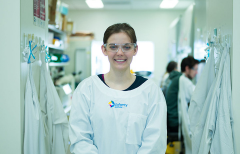
PhD
By choosing the Doherty Institute to complete your PhD, you will learn from global leaders in infection and immunity, with access to high calibre scientists and facilities in an environment where cutting-edge research is side by side with public health laboratories.
-
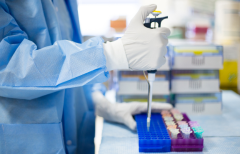
Clinician Graduate Research Training
A wide range of research groups at the Doherty provide opportunities for clinicians to undertake graduate research, including basic virology, bacteriology, parasitology and immunology, pathogen genomics, antimicrobial resistance and antibiotic allergy, clinical trials, epidemiology, infections in pregnancy and public health.
-

Meet our graduate researchers
Our graduate researchers give us a glimpse into their life, to tell us about their experience and why they have made the Doherty Institute their choice to study.
-
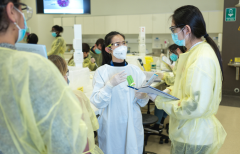
Master of Biomedical Science
The Master of Biomedical Science at the University of Melbourne is a coursework master’s degree incorporating a substantial research project. This course is an alternative to the Honours as a PhD pathway.
-

Honours
Honours is a fourth-year undergraduate course that consists of a combination of a research project and coursework subjects. The course is designed to develop the student’s capacity to solve problems, analyse data, read and think critically, and communicate clearly.
-
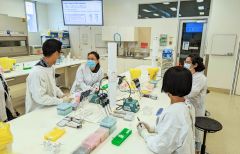
Undergraduate study
At the undergraduate level, the Doherty Institute is home to the Department of Microbiology and Immunology and the Department of Infectious Diseases, which delivers specialised courses in One Health, bacteriology, virology and immunology along with more generalist infection and immunity subjects.
-

Student information days
Not sure where to next? Need some advice? Visit us to find out about courses, pathways and careers and to explore the University of Melbourne and the Doherty Institute during one of our student information sessions.
-
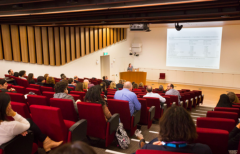
Educational and professional forums
Through symposia, visiting scientists, the Doherty Institute Seminar Series and other educational forums, students have the opportunity to hear from and collaborate with world-leaders in their field while showcasing their own expertise.


